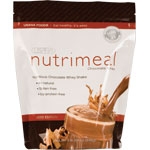Improper cholesterol levels
Cholesterol is a primary concern when addressing heart health, and the standard lipid panel tests of total, LDL, and HDL cholesterol levels are very valid indicators of risks for cardiovascular disease. Believe it or not, despite the bad press we usually hear about cholesterol, it does provide several important life-sustaining functions between the liver and the body’s cells, when it is kept in proper balance. It is only when cholesterol gets outside of optimal ranges that it begins to pose a threat.
Overall, you want LDL (low-density lipoprotein) to be low (think of the first “L” as indicating “low”) and your HDL (high-density lipoprotein) to be high (think of that “H” as representing you want it “high”). The reason for this is that LDL cholesterol is the plaque-producing enemy and HDL is very beneficial in reversing plaque. HDL will actually “mine” bad cholesterol out of the walls of your arteries and dispose of it in the liver in a process called “reverse cholesterol transport” – a very desirable process.
Research is finding that the cholesterol levels thought acceptable in the past have changed. The optimum range for HDL is 60 mg/dL or higher, while the desired level of LDL is less than 100 mg/dL, and if an individual has other risk factors for cardiovascular disease or has cardiovascular disease, most doctors try to get the LDL to 70 mg/dL or lower. The American Heart Association considers total cholesterol of 200 to 240 mg/dL to be of concern, and 240 mg/dL or higher to more than double the risk of heart attack or stroke. If you have other risk factors for cardiovascular disease or if you have cardiovascular disease and your LDL is above 100 mg/dL and your HDL is below 50 mg/dL, you need to take immediate steps to correct these levels.
Your first step in reducing your LDL is best addressed in your diet. Probably the most important dietary advice to lower cholesterol is to eliminate sugar, fruit juice, and high-glycemic foods such as white bread, white rice, and instant potatoes. When you eat sugary foods and beverages or high-glycemic foods, they spike your blood sugar and raise your insulin levels. High insulin levels trigger your liver to produce more cholesterol. Also avoid fried foods and foods with trans fats, refined carbohydrates, and a lot of sugar, including fruit juices. Limit saturated fats, choose smaller portions of lean meats and nonfat dairy products, and peel the skin off chicken and turkey. Adopt the Mediterranean diet and look for snacks or foods that are high in fiber.
It is also recommended that you supplement your diet daily with:
• Niacin (lowers LDL cholesterol and raises HDL, or the good cholesterol). To avoid flushing, start with 500 mg after breakfast and 500 mg after dinner with one baby aspirin. Do this for two weeks, then increase the dose to 1,000 mg after breakfast and 1,000 mg after dinner with one baby aspirin. Have your liver functions checked in one month with your primary care physician and your lipid panel checked in three months.
• Soluble fiber such as PGX fiber (two to four capsules with each meal)
• Plant sterols, or Cardio-Edge (two 400-mg capsules after each meal)
• Red yeast rice, or LipiControl (1,200 mg twice a day; take CoQ10 with red yeast rice)
Lastly doctors often recommend hormone therapy for patients with elevated LDL because many people have high cholesterol as a result of low estrogen, progesterone, pregnenolone, DHEA, or testosterone levels in the blood. In addition, cholesterol is the precursor to testosterone is low (in men), their bodies compensate by creating more cholesterol. If you have high LDL cholesterol, ask your doctor about blood tests that can measure your levels of testosterone and other hormones, and then discuss bioidentical hormone replacement to restore your hormone levels to optimal ranges as part of your plan to decrease your risk of cardiovascular disease.
 USANA Vitamins Supplementation Chocolate Whey Nutrimeal™ is a soy-protein free alternative to the line of USANA® Nutrimeal shakes. It is a meal-replacement drink that is low glycemic. USANA Chocolate Whey Nutrimeal is also gluten free†, a great alternative for those with wheat allergies and gluten intolerance.
USANA Vitamins Supplementation Chocolate Whey Nutrimeal™ is a soy-protein free alternative to the line of USANA® Nutrimeal shakes. It is a meal-replacement drink that is low glycemic. USANA Chocolate Whey Nutrimeal is also gluten free†, a great alternative for those with wheat allergies and gluten intolerance.
USANA’s Chocolate Whey Nutrimeal is a delicious way to get 15 grams of protein every day. USANA developed Chocolate Whey Nutrimeal for those who have soy, wheat, or gluten sensitivity and for athletes who often prefer to use whey as a protein source. It offers a healthy blend of fats, whey protein, and good carbohydrates.

